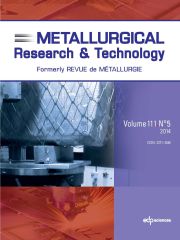Article contents
Holistic life cycle approach for lightweight automotive components
Published online by Cambridge University Press: 02 September 2014
Abstract
Since sustainability and environmental issues rose lately, lightweighting has been the point of interest for automotive and aerospace sectors. Lightweighting reduces the fuel consumption of the vehicles and as a result of this reduces emissions. Aluminum, especially wrought aluminum alloys, have large potentials for dramatic weight reduction of structural parts while maintaining the safety and performance. Wrought aluminum alloys are used in automotive skin, bumpers and suspension parts etc. Lightweight suspension parts improve the ride quality and handling, additional to fuel consumption and emission reduction. Holistic life cycle approach takes into account the material flows and related information flows in order to achieve these material flows through the life cycle of the components as well as performance characteristics not only in technical and economic terms but also environmental and social terms. It is necessary to have seamless information flow through the life cycle of the components that could be enabled by the closed-loop product life cycle management (PLM). Closed-loop PLM may also help collection of life cycle information which is necessary to generate performance characteristics and distribution of performance characteristics among life cycle actors.
- Type
- Research Article
- Information
- Metallurgical Research & Technology , Volume 111 , Issue 3: Social Value of Materials (SAM 7) , 2014 , pp. 137 - 146
- Copyright
- © EDP Sciences 2014
References
- 6
- Cited by


